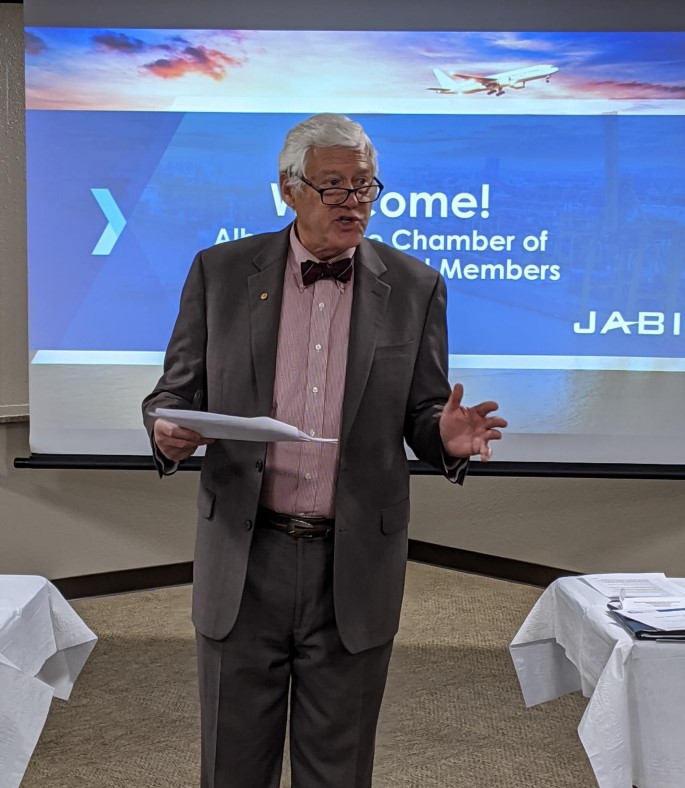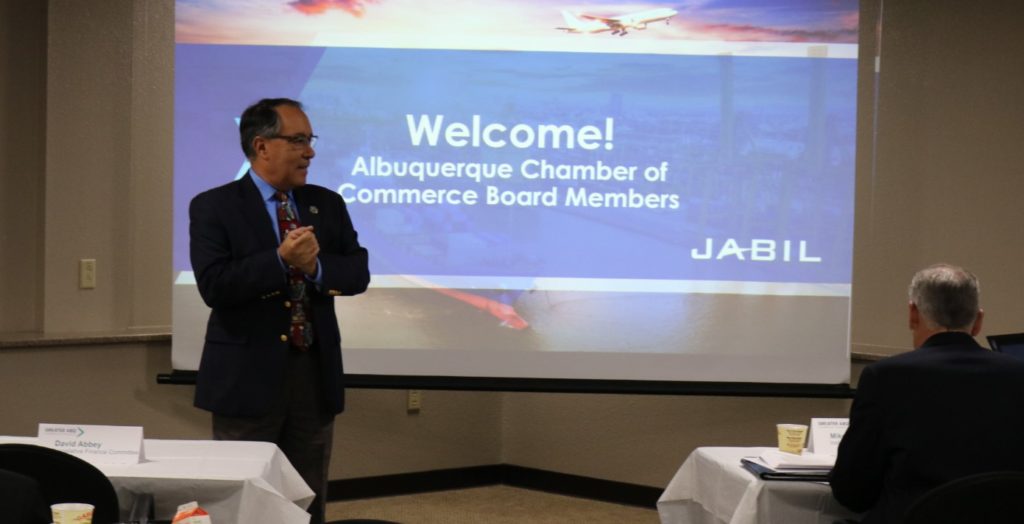Legislative Finance Director David Abbey described at the Chamber’s December Board meeting how an “explosion in oil and gas production” is driving continued growth in state revenues, while foreshadowing that fiscal projections in December would be somewhat lower than the historic highs forecast in the LFC’s last quarterly report. Director Abbey also described New Mexico’s recent economic growth, and previewed some of the key issues he believed would be at the forefront of the 2020 legislative session beginning next month.

Legislative Finance Committee Director David Abbey discussing the latest fiscal outlook for the state at the Chamber’s December Board meeting
The growth in recurring revenue this year would likely drive continued investments in infrastructure and education, Abbey predicted, while also helping to strengthen the state’s reserves and permanent funds. For example, Director Abbey indicated that more than $180 million in excess oil and gas revenues had been transferred to the so-called “rainy day fund”, and other reserve funds had been backfilled with budget surpluses. The establishment of a new permanent fund for early childhood programs would likely be a major topic in 2020, Abbey indicated — a proposal which the Chamber’s Board unanimously supported in principle.
The areas of likely pressure for increased spending in this revenue environment, predicted the LFC director, would be K-12 education, early childhood programs, and Medicaid. He also noted unfunded pension liabilities, gross receipt tax reform, and fiscal stabilization measures as other outstanding challenges for the state, highlighting North Dakota as an example of another state grappling with how best to handle an extreme and rapid increase in natural resource revenues.
Director Abbey also described New Mexico’s employment picture as steadily improving, with 1.4% average growth in fiscal year 2019 and a projection of 1.7% average growth in the current fiscal year, while cautioning that up to 55% of new jobs statewide were attributable to oil and gas development, a sign that further economic diversification is needed to make New Mexico less vulnerable to volatility in a single industry.
One challenge the near-full employment picture poses is whether the state would be able to find the workers needed to execute the construction projects and other investments that were funded across the state this year, including nearly $1 billion in unspent capital outlay funds.

Chief Operating Officer for the City of Albuquerque Lawrence Rael provides the Board with updates on the City’s plans regarding Downtown development following approval of bond projects for initiatives —including a new 24/7 homeless shelter and Rail Yards redevelopment — in November’s local elections
Also at the December Board meeting, Chief Operating Officer for the City of Albuquerque Lawrence Rael provided the Board an update on the City’s plans following the November elections which saw multiple major bond proposals approved by voters, including funding for a new 24/7 homeless shelter. “A big thanks to Terri and the Chamber for really helping us have a very successful election,” said Rael. “You know, $128.5 million in bonds were approved, and $14 million to the new shelter. It shows that when we all put our heads together at the local level and work with each other, you can do a lot of good things.”



